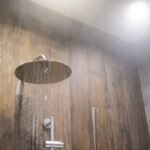Taking into account the wants and needs of the future resident
The importance of consent
The decision to enter a retirement home must come from the person concerned. Even if your parent’s health deteriorates, if his or her dependency increases, it is not up to you to make the decision to “place in care”. Entering an institution involves a change of life and environment, which is never easy, especially for an elderly person. You have to talk about it with her, weigh the pros and cons, look for alternative solutions that could suit her better. Choose a Retirement home in Nice can also provide a geographical advantage for those residing in the south of France. Any forced decision can have catastrophic consequences on the evolution of his health and balance.
General Tips
The reputation of the establishment
Find out about the reputation of the establishment. Cross-reference the information you can gather (in this area, word-of-mouth can be very useful…). Observe the attitude of the residents: are they parked in front of the TV, or are they participating in activities (press review, memory workshop, cooking, etc.)? Are the staff distant, or even deaf to their calls? Do they have a façade smile that will probably disappear as soon as your back is turned?
Documentation and prices
Quality labels
Favour labelled establishments : Various signs of quality are beginning to be offered in retirement homes, but their levels of requirement are very uneven. Thus, the NF standard created by Afnor to improve the quality of services is almost a copy and paste of the quality indicators of the mandatory external evaluation set up by the public authorities. The same applies to the Qualicert certification label.
Staff Relations
Try to maintain good relationships with staff : Entering a retirement home is always an ordeal, for the resident as well as for his or her relatives. And the temptation is great to transfer one’s unhappiness to the staff, which often results in permanent reproaches and recriminations. Rather than being systematically “against”, it is more constructive to trust these men and women who make a metiand to work together to improve life in the facility.
The living environment
The building
The architecture of buildings is an essential point of quality of life. It must be warm, open to the outside. Don’t be fooled by the bouquets of flowers in the entrance and the decorum of the façade. The reception hall should not be reduced to a cramped desk behind which a hostess stands. Large bay windows, natural light, and an unobstructed view maintain the morale of residents and staff alike. The existence of a cafeteria where families and visitors can have a snack immediately creates a friendly atmosphere. Similarly, the scattering of small lounges offers families greater privacy than a large and single collective living space.
But don’t neglect the small details that are important: lighting adapted to reading, corridors equipped with handrails and wide enough to allow the passage of wheelchairs, floor colors and floor markings, spacious elevators or any other adaptation of the premises to people with disabilities (even if you or your parent are not, you don’t know what the future may, alas, hold for you). You also have to be very attentive to smells. They are indicative of the hygiene of the establishment. A garden is obviously a plus, as long as it is not just concrete slabs, decorated with plastic flowers!
The room
The room is a private space. Bringing some personal furniture allows you to better appropriate your new place of residence. Avoid establishments that impose standard furniture and limit the resident’s contribution to a few knick-knacks and small objects. Check that all rooms are equipped with a bathroom (sink + toilet + shower) accessible to people with reduced mobility. This equipment, although minimal, is not yet systematic in all retirement homes. Most elderly people living in nursing homes are losing their autonomy and need help with toileting. When the staff is understaffed, the toilet is very quick. Ask how many showers you can take. Also find out about the doorbell and remote alarm system: how does it work? What is the average staff response time?
The organization of daily life
Timetable
If life in a retirement home allows you to break the isolation, it also involves constraints. The timetable is punctuated by schedules, from getting up to going to bed, from toilet to meals, including activities and outings. These rules are more or less flexible depending on the establishment. The possibility of adapting the collective organization according to the needs and desires of the residents is a point to which particular attention must be paid.
Meals
The older you get, the more important the meals become. The conviviality of the dining room is just as important as the content of the plates. Consulting the menus of the week is not enough to judge the quality of the cuisine. Don’t be fooled by the high-sounding titles like nouvelle cuisine! Ask to participate in a meal, you will be able to really judge the real content of the plates (most often catastrophic)!
Entertainment
They are an important asset of retirement homes. Scrabble sessions, soft gym, manual or artistic workshops… Ask for the programme of activities to check if they correspond to your parent’s tastes and desires. Also find out how often they occur. Except in large commercial groups, a full-time animator is rarely found. Staff members are often called upon to contribute, which is not a bad thing, on the contrary, everyone brings their talents to the community.
Releases
The organisation of regular outings adapted to the degree of autonomy of the residents is a sign of the establishment’s openness to its environment. It is also a way for residents to break the monotony of everyday life. However, they must be adapted to the wishes and interests of the residents. They should not tire them out unnecessarily (a walk in a market can be more profitable than a visit to a museum!) Check their frequency and organization.
Medical care
The composition and qualification of the staff
Nursing homes are medical establishments, so the staff is mainly made up of nurses, nursing assistants, care assistants and paramedical professionals (occupational therapists, psychomotor therapists, psychologists, dieticians, etc.). Never forget that their working conditions are particularly trying (the rate of absenteeism and occupational diseases is higher than that of the construction industry). Any overload or understaffing can quickly lead to a deterioration in the quality of care. And abuse is never far away. “For example, not allowing a usual nap in bed due to a lack of staff can be a painful ordeal for an elderly person. The unrestrained use of physical, architectural, pharmacological or psychological restraints should also arouse attention,” notes Dr. Bernard Pradines, geriatrician. It is therefore essential to find out about the number of staff and work cycles. Are they sufficient? How many residents does each of them have to take care of? Do they benefit from regular training to improve their know-how, in particular training in well-treatment? How many times a week is the coordinating doctor present?
Night duty
Given their loss of autonomy, residents in nursing homes need 24-hour supervision. How is night guard organized? Are the staff able to deal with emergency situations? Is the establishment connected to a hospital or a geriatric department? Find out how many staff are present at night and their qualifications (nurse, nursing assistant or care assistant).
Management of severe loss of autonomy
Your parent’s health may worsen. Does the establishment undertake, particularly in the residence contract, to accompany an elderly person who is becoming increasingly dependent? Is there a unit dedicated to people with Alzheimer’s disease or other related pathologies? How will the additional services be invoiced?
End-of-life support
For most residents, the nursing home is the last home. Can we stay in the school until the end? Have the care teams received training in palliative care to enable them to provide the best possible support in this final stage? Or is this care provided by external workers? These are all crucial questions that must be addressed during preliminary conversations with the management of the nursing home.
Where to find out more
There are many sources of information on accommodation for seniors and are not very centralized. Here are a few tips to help you in your research.
- The Clic de votre secteur (local gerontological information and coordination centre) is a free system that informs and advises the elderly and their families by facilitating access to existing schemes, rights, aid, etc.
- The CCAS (communal centre for social action) in your city: it generally has a specific service for retired and/or elderly people. Contact the town hall to be put in touch.
- The General Council. Most of the General Councils have a department dedicated to the elderly and/or disabled, which lists the information likely to be of interest to them and lists all the services and establishments intended for them.
How to choose the right retirement home or residence for your loved one?
There are several thousand establishments, with very variable prices, characteristics and services. The choice of a retirement home is therefore not easy and it is necessary to establish, before any selection, a list of criteria that will guide your search. There are several ways to find a good residence. Of course, a visit to the planned establishments is necessary to check that they meet your expectations and needs.
How to choose a suitable retirement home?
The choice of a retirement home for a loved one must be made in the most rational way possible. It is important to set aside the subjectivity and emotions that can accompany this important turning point in life, in order to focus on the needs and expectations of the elderly person looking for a care facility.
How to choose
- Residence-autonomy or serviced residence for peopleare more autonomous, looking for a formula close to home,
- MARPA for people looking for individual housing in an agricultural environment,
- nursing home (EHPAD) in the event of significant loss of autonomy or disability,
- long-term care unit (USLD) if major medical care is necessary.
- Some retirement homes offer specific care, especially in small living units.
- the elderly person’s income,
- their available savings,
- the various allowances from which he or she may benefit (social assistance, housing assistance, etc.)
- the financial support that his loved ones can give him over the years.
- The available budget is a criterion for choosing the essential retirement home.
Finding a good retirement home
Once you’ve determined your search criteria, you know more about finding a good retirement home that meets your specific needs. The best retirement home is the one that allows you to reconcile all your criteria (autonomy, budget, location and availability).
You have several options for finding a good retirement home:
- consult a directory of nursing homes and senior residences,
- contact the communal centre for social action (CCAS) or a local information and coordination centre (CLIC),
- visit the departmental council’s website,
- get help from a dedicated Cap Retraite advisor. He will accompany you throughout your search process.
How to visit the retirement home?
Once the criteria for choosing the retirement home have been defined, all that remains is to visit the various establishments likely to meet the needs of the elderly person and their entourage.
List of points to consider when choosing the right retirement home
- The general environment of the residence: Accessibility, security, living environment, air conditioning, impressions during the reception.
- The rooms: Appearance and comfort of the room, presence of a bathroom adapted to the needs of the future resident.
- Medical care: Composition of the nursing staff of the retirement home, presence of paramedical workers, partnership with external stakeholders (palliative care, hospital, etc.).
- Catering and entertainment: Composition of the meals, atmosphere in the dining room, diversity of entertainment.
Summary: 7 steps to choosing a retirement home
Frequent question: Which retirement home to choose for an Alzheimer’s patient?
To determine which retirement home to choose, it is first necessary to assess the level of of the future resident’s autonomy. A person with Alzheimer’s disease will be able to live in a senior residence as long as they are independent enough to fend for themselves. When the loss of autonomy sets in, it will be necessary to choose a nursing home, with trained staff. Most nursing homes are adapted to the management of cognitive decline and behavioral disorders.



